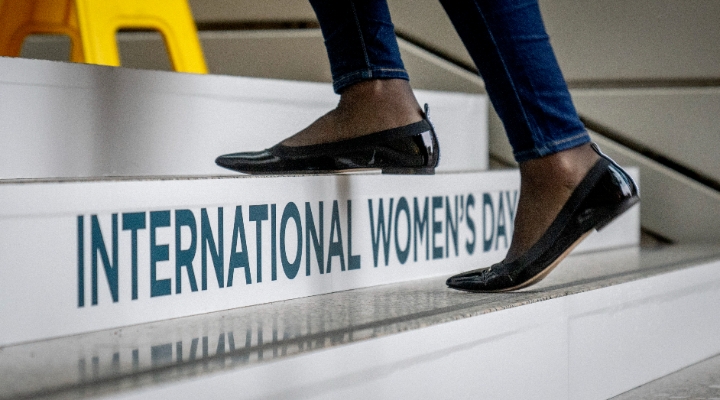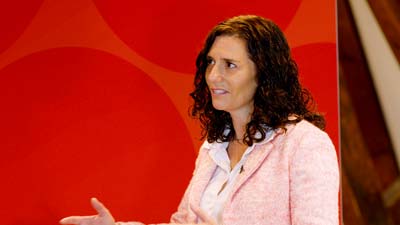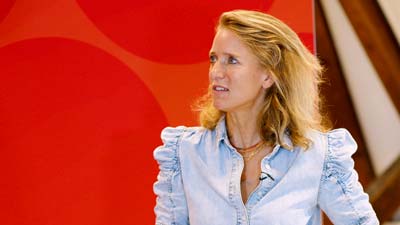
There has been a growing focus on gender diversity in top management positions in European banks in recent times. Even as the banking sector is making strides towards enhancing female representation within management ranks, there is still a significant journey ahead in achieving gender parity.
Women are still underrepresented in senior management positions in European banks. Women occupied 38% of board member seats, just 23% for senior executive roles (C-suite roles) and only four of the 62 banks were run by a female CEO in 2022, according to a DBRS Morningstar report.
On the bright side, the following European financial institutions are leading by example, putting their commitment to gender diversity into action, thereby spearheading the move towards achieving gender parity in the European Union.
Headquartered in Spain, Banco Bilbao Vizcaya Argentaria (BBVA) has a global footprint, with operations spanning across Europe, Latin America, the U.S., China, and Turkey. The bank provides a comprehensive suite of services including consumer and mortgage loans, private banking, asset management, insurance, mutual funds, and securities brokerage.
The Spanish bank recently appointed Luisa Gomez Bravo as the bank’s new chief financial officer. Gomez Bravo started her professional journey at Salomon Brothers and Lehman Brothers, before joining BBVA over two decades ago.
“Banco Bilbao Vizcaya Argentaria, or BBVA, will generate higher midcycle profitability than its peers, supported by its market-leading positions in attractive banking jurisdictions, notably Mexico [around 50% of earnings],” says a Morningstar equity report.
The highly profitable Mexican operation remains the firm’s undoubted crown jewel. “BBVA is the clear market leader in the oligopolistic Mexican banking sector, with 40% of Mexicans receiving their salary in a BBVA current account,” says Morningstar equity analyst Johann Scholtz. He attributes BBVA's ability to generate ROEs north of 20% in Mexico to this enviable position.
Spain (25% earnings) and Turkey (15%) are its other largest markets. As a retail and commercial bank, BBVA has limited exposure to volatile investment banking activities. Further, “diversification across different geographies reduces earnings volatility and BBVA's earnings have historically been more stable than most other European banks,” says Scholtz, who puts the stock’s fair value at US$9.90.
Spanish banking behemoth, Santander (SAN) offers retail and commercial banking in Europe, Latin America and the U.S. Latin America stands as the most substantial operation, with Brazil being the primary contributor. Within continental Europe, the business is mainly concentrated in Spain and Portugal.
The bank recently appointed Ana Botin as the group executive chair. Botin worked at JP Morgan prior to joining Santander in 1988 and has led the bank’s expansion in various geographies around the world.
Santander is one of the market leaders in Brazil, Mexico, and Chile. Its “strong competitive position in these consolidated, oligopolistic markets protects its high profitability,” says a Morningstar equity report.
In the recent past, the bank’s profitability has beet hit by low interest rates, especially in its European operations. However, “the return to a more normalized monetary policy environment has supported a profitability improvement in Santander's European and U.S. operations,” says Scholtz, who puts the stock’s fair value at US$5.90.
Santander generates nearly half of its earnings from its highly profitable Latin American markets, clocking high-double-digit/early-20s returns on equity. Thanks to rising interest rates, the bank is “confident that it can significantly improve the profitability of its European and U.S. businesses,” where its returns have been historically subpar, adds Scholtz.
Santander aims to outpace its competitors in growth by focusing on its investment banking, wealth management, auto finance, and payment operations.
British banking giant, Standard Chartered (STAN) provides services across 60 countries, including in Asia, Africa, the Middle East, and the U.K. Corporate and transaction banking, financial markets, and corporate finance account for the bulk of its business. The bank has strong retail franchises focusing on the affluent segment in Hong Kong, Singapore, and some African countries.
One of Europe’s largest lenders, Standard Chartered has boosted its gender diversity where women account for more than 53% of top management teams, outnumbering men in top management positions.
Standard Chartered’s measures for boosting profitability have borne fruit, with the bank now looking to narrow the gap between returns and its cost of capital. “Standard Chartered's strategy now emphasizes a more targeted approach in retail banking, corporate banking, and institutional banking, aiming to achieve growth with lower risk and less capital intensity,” says a Morningstar equity report.
In retail banking, the bank has sharpened its focus on the affluent segment in markets like Hong Kong and Singapore, offering multiple banking and wealth-management products. The bank is also leveraging technology for better cost alignment. While “complex transactions taking place at branches, simpler transactions and inquiries are handled through the bank's contact center and digital platforms,” says Morningstar equity analyst Michael Makdad.
Hong Kong remains its largest market, accounting for around one fourth of its revenue, which enjoys a favourable regulatory environment for the largest local banks, says Makdad, who puts the stock’s fair value at GBP820.






























